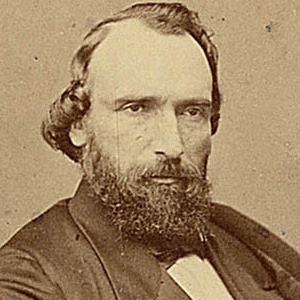
Henri Amiel (1821 – 1881) was a Swiss philosopher and poet. Born in Geneva, in 1849 he was appointed professor of aesthetics at the academy of Geneva, and in 1854 became professor of moral philosophy. The one book by which Amiel is still known, the Journal Intime (“Private Journal”), was published after his death and obtained a European reputation. Although modest in volume of output, Amiel’s Journal gained a sympathy that the author did not obtain in his life.

Quotes by Henri Amiel…
A capacity for self-recollection — from withdrawal from the outward to the inward — is in fact the condition of all noble and useful activity.
A hundred thousand sheep are not more instructive than one sheep.
Self-interest is but the survival of the animal in us. Humanity only begins for man with self-surrender.
To win true peace, a man needs to feel himself directed, pardoned, and sustained by a supreme power, to feel himself on the right road, at the point where God would have him be — in harmony with God and the universe. This reliance gives strength and calm.
At bottom there is but one subject of study… the mind. All other subjects may be reduced to that; all other studies bring us back to this study.
My true being, the essence of my nature, myself, remains inviolate and inaccessible to the world’s attacks.
Truth above all, even when it upsets and overwhelms us!
Our liberty, wisely understood, is but a voluntary obedience to the universal laws of life.
To understand things we must have been once in them and then have come out of them; so that first there must be captivity and then deliverance, illusion followed by disillusion, enthusiasm by disappointment. He who is still under the spell, and he who has never felt the spell, are equally incompetent. We only know well what we have first believed, then judged. To understand we must be free, yet not have been always free.
We are never more discontented with others than when we are discontented with ourselves. The consciousness of wrongdoing makes us irritable, and our heart in its cunning quarrels with what is outside it, in order that it may deafen the clamour within.
